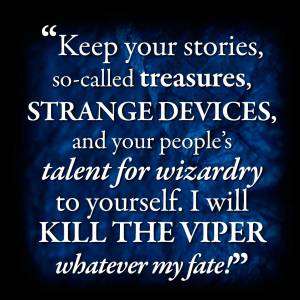 Sword-and-Science Historical Fantasy
Sword-and-Science Historical Fantasy
The Treasures of Dodrazeb is for anyone who enjoys history with a dash of fantasy interwoven with compelling mystery. It chronicles the adventures of Persian warrior-prince Rasteem when he discovers a secretive kingdom deep in the Himalayas. Inhabited by descendants of an ancient, scholarly society hiding powerful technology, he finds the people and their culture are by turns fascinating and frightening. At once drawn to and confounded by its strong-willed princess, the would-be conqueror has much to learn about the treasures hidden in Dodrazeb—and why the outside world isn’t ready for them.
The Origin Key is the first book in the series.
On a quest for vengeance against a criminal known as the Viper, Prince Rasteem becomes suspicious when his army easily conquers Dodrazeb. Princess Laneffri is desperate to expel the Persian invaders from her kingdom and will stop at nothing to protect its secrets—especially the Origin Key, a powerful, ancient device. When Rasteem learns what the Origin Key can do, he must find a way to make the princess an ally to save both their kingdoms from annihilation.
Recent Reader Reviews on Amazon
5.0 out of 5 Stars Loved it!
Well thought out thriller full of adventure and pulse pounding action. I loved it and recommend it highly.
5.0 out of 5 stars A good, fun read
This was a bit mystery, alternative history, and a bit romance. The characters were interesting and I found myself involved and rooting for them as they fought and fell in love. The mystery of who was actually the villain was well done. I enjoyed the book and it is well worth reading. I would recommend this book to anyone.
5.0 out of 5 stars Amazing read!
Read it in a night since I didn’t want to put it down. You will thoroughly enjoy! The Origin Key should be added to your READ list.
4.0 out of 5 stars Good Persian Historical fiction with interesting characters and enough plot twists to keep you up late reading.
A good story with interesting plot twists. This is some very well done historical fiction!
The characters are well developed and interesting and the pace is good. The book pulls you in and the architectural descriptions are very nice and helpful.
I’ll be reading the sequel as soon as it’s available, that’s about the best praise a book can get.
5.0 out of 5 stars If you are looking for grand adventure, look no further! This is definitely the book for you!
After a brutal attack leaves their father fighting for his life, two Persian princes seek vengeance marching an army great distances to a hidden city searching for the Viper, the man responsible for the attack. Thinking to find the Viper, King of this city, in residence, they attack with vicious force only to be met with small resistance. The older brother’s rage is held in check by the influence of Rasteem, the younger prince. As he learns more of the peaceful inhabitants of the city, Rasteem is amazed and his doubts grow that it’s king can be the Viper. Filled with all the war and bloodshed of its age, this tale is also filled to the brim with adventure and magic! The hidden city brings to mind survivors of Atlantis with all the wonders that entails. Everything the city holds and all within it are far advanced for their time. They seek to peacefully spread knowledge throughout the world without endangering themselves. If you are looking for grand adventure, look no further! This is definitely the book for you!
Like to sample before you purchase?
Try this excerpt! This chapter takes place near the beginning of the book. It tells how Prince Rasteem and Princess Laneffri first meet, neither realizing the other’s true identity.
Mounted troops rode into the valley and squads on foot went door to door inside the massive wall in a meticulous search.
As comfortable in the saddle as he was leading infantry on foot, Rasteem sat astride Kurush, a glossy reddish-brown stallion with black mane and tail. Handlers from the king’s stables had said he was too high-spirited to be a suitable war horse, just like army officers had believed Rasteem was too reckless and temperamental to become a good soldier. Rasteem and Kurush proved them all wrong.
When he was younger, Rasteem’s outbursts often eclipsed his brother Zardegerd’s. Time and tragedy molded Rasteem into a composed and prudent leader who channeled his uncontrollable temper into ferocity in battle. He had turned his impatience into thoughtful awareness.
Most of the time.
Rasteem rode at a slow trot across a somewhat desolate corner of the kingdom. Kamran was on horseback beside him as they approached another dwelling. The other side of the valley was a bright patchwork of trees, verdant fields, and orchards. Farms there were nourished by fresh flowing water from canals and irrigation trenches. This corner of the kingdom was home to scattered goat and sheep herders. Their livestock grazed on the scant vegetation in the rocky hills. Streams and smaller brooks brought water from the valley’s winding river, but shade was scarce.
At the first dwelling they visited, an old man and woman cringed and wailed while two soldiers kept them corralled with drawn swords and menacing expressions. Rasteem and Kamran went inside, watching as soldiers rifled through the two-room, thatch-roofed hut. What they found inside surprised Rasteem. He ordered his men to be quick and thorough, respectful of the peasants’ meager possessions.
He saw flagstone floors instead of hard, packed earth. There were stacks of glazed ceramic dishes and metal serving utensils, not crude wooden bowls and spoons. Cupboards and chests stored clothing and belongings. The outbuildings were also neat and tidy. Stalls and fodder for the animals, feed for chickens pecking at the hard ground, stacks of raw wool, and farm tools didn’t interest the prince.
The soldiers found nothing suspicious in the hut or the outbuilding. They headed for the next dwelling and found the same type of clean, orderly home. The shrill cries of a woman and two young boys accompanied the search there. To Rasteem’s relief, the third house they visited was empty, long abandoned.
He decided to split his squad and send the men in pairs so they could search faster. He and Kamran headed for the next nearest cottage. They were back in their saddles when a loud rumbling came from the boy’s direction. Rasteem looked at him.
“I’m hungry.” Kamran complained. “I should have raided the larder at that first house.”
Rasteem chuckled. “That bottomless pit of a stomach will betray you one day when you need stealth and silence—like it did on our last hunt. Remember?”
“I would have killed that panther! It would have been my second, one more than Tujee.” Kamran and Zardegerd’s second son were friendly rivals, always trying to surpass each other. Tujee had gone into battle once, but Kamran had earned bragging rights by killing an enemy in his first experience with war. If Tujee hadn’t sprained his ankle during Rasteem’s training session, he would have been in Dodrazeb with Zardegerd and Kamran would have stayed in Argakest.
Kamran became thoughtful. “Why is Uncle Zardegerd convinced Chudreev the Viper is from here? Why doesn’t he listen to you?”
“Because the only Chudreev we could discover, the only one anyone had ever heard of is the king of this valley.”
“But… it was you… you’re better…,” Kamran stammered. “You tracked Grandfather’s attackers and found Dodrazeb.”
Rasteem blew out a long, slow breath. “Zardegerd commands the army while Father cannot. We take our orders from him.” His eyes narrowed. “Zardegerd will be the King of Kings one day, sitting on the Throne of Light—I only offer advice. It is our place to be warriors always loyal to the rightful king.”
“I know—I don’t mean—it’s just that—” Rasteem waited for Kamran’s thoughts to catch up to his mouth. “He usually listens to you.”
“He’s right about one thing. We must find and dispatch the murderers’ leader. We can’t tolerate incursions into the Empire that threaten the king’s life.”
“So the most likely explanation is that this Chudreev is the one.” Kamran was still curious. “Why do you think it might not be him?”
“These Dodrazebbians are not warlike, weren’t prepared for our assault. They don’t dress like the marauders who attacked Father, and they use different weapons. The vandals are shorter and darker, more like the nomads who plague the Empire’s northern provinces.”
Kamran paid sober attention to the lesson. “You didn’t expect to find Chudreev Pranaga here even before our attack?”
“I thought we might find a king named Chudreev—just not one stupid enough to orchestrate an attack on Father,” Rasteem explained. “I’m not convinced the Chudreev of Dodrazeb is the right one. But Zardegerd is. So here we are.”
Brilliant sunshine beat down on them. Rasteem and Kamran slowed their horses to a walk as they neared the next deserted-looking cottage. The back of the dwelling and the dilapidated outbuilding next to it abutted a steep, rocky outcropping dotted with brambles and sparse tufts of vegetation. Its thatched roof needed repair. A crooked door dangled from a loose hinge.
A broad, shallow stream flowed past a cluster of trees near the house and meandered beyond it. The trees beckoned passersby to enjoy a respite from the heat and dust. Sunlight poured through the branches onto the cool water, making the ripples sparkle.
“It looks empty,” Rasteem observed. “We should keep going.”
“Uncle, aren’t you thirsty?” Kamran asked.
“Roasting inside your armor?” A sly grin tipped up one corner of Rasteem’s mouth.
“Well…” Kamran tried to wipe sweat from his brow, hindered by his helmet.
“All right, then. The horses will be grateful for a drink as well.” Rasteem dismounted and led Kurush to the stream. Alert and watchful, Kamran waited as he had been trained before taking a turn at the water’s edge.
Rasteem knelt, dipped his cupped hand into the stream, and drank a handful of water. He plunged his head beneath the ripples, savoring its bracing coolness. He stood up and flicked wet hair away from his face with a satisfied sigh. Surveying the small house again, he shifted his gaze upward to check the sun’s position. “Come on, boy! Be quick.”
Kamran pulled off his helmet to immerse his sweaty head in the water and enjoyed several greedy gulps. When he was done, he threw his head back and shook his dripping curls. “I wish it was deep enough to—”
Rasteem grabbed his arm and turned him to face the small cottage. “Listen to me, say nothing,” he whispered.
Kamran nodded, wondering why his uncle didn’t want to be overheard by the trees.
“Do you see smoke coming from the chimney?” Rasteem asked.
Kamran squinted at the distant thatched roof and shook his head. The horses took a long drink while the soldiers appeared to be engaged in casual conversation.
“Pay attention. I can smell the fire someone has started in there.”
Kamran sniffed the air and detected a faint aroma that might have been a campfire while he studied the sky above the small dwelling. He watched a few faint gray wisps emerge from its chimney and disperse on the breeze. A small, steadier column of smoke soon diminished to intermittent wisps that faded away. “I see it now!”
Rasteem seized the opportunity to emphasize the importance of strategy. “Does that hovel look inhabited?”
“No,” Kamran whispered.
“Then why is someone lighting a fire? Do you still see smoke?”
“No. They must have put the fire out—someone is hiding in there!” Kamran hissed. “And… and they’ve seen us, but they don’t know if we’ve seen them.”
Rasteem smiled. “Here’s our plan. We will ride toward the place as if we intend to search it. When we get closer, I’ll say it appears to be empty and we should move on. Follow me riding past it and stop when I stop. Understand?”
Baffled, Kamran asked, “Why don’t we just drag them out?”
“If they’ve seen us, they’re prepared for an attack.”
“If they think they haven’t been discovered, their guard will be down.” Excited, Kamran almost forgot to lower his voice.
“Exactly.” His uncle’s approval was worth everything to Kamran.
Rasteem didn’t share his conclusion that only one or two men were hiding, a valuable lesson for Kamran with little risk of injury. He didn’t expect the occupants to put up much of a fight.
Kamran jammed his helmet back on and they mounted their horses. Rasteem led them toward the little dwelling at a trot, stopping on the hard-packed earth outside it. Light did not penetrate beyond the broken dangling door into pitch-black darkness.
“It’s another empty one,” Rasteem announced. He gave the place a bored glance. “I’m ready to get back to camp.”
They rode around the steep hill behind the ramshackle old cottage. They dismounted, approached the barren hillock, and peered around it. There was no sign of activity.
Rasteem whispered, “Stay several paces behind me. When I go through the door, wait outside. If anyone gets past me, stop them.” Kamran’s eyes glittered with excitement.
Rasteem drew his shamshir and took a deep breath. He sprinted toward the side of the hut, confident he could take the occupants by surprise. He knew Kamran could be adept at stealth, appearing from nowhere to defeat his cousins in mock battles.
He signaled Kamran. With a burst of speed, he hurtled toward the doorway. The boy followed, sword drawn, hanging back as ordered. Rasteem tore the rickety door from its one loose hinge and launched himself through it with a roar.
Rasteem surveyed the dark interior as his cry swelled. Trying to take in every detail at once, he missed one crucial item: a thin rope stretched across the doorway at ankle height.
The trip wire sent Rasteem crashing toward the floor. A shrill scream echoing inside his skull, he twisted and tried to roll onto his back before hitting the dusty flagstones. Something heavy hit him, sending a jolt of pain through his right shoulder blade. The force knocked him forward onto his stomach and sent his sword flying out of his hand.
Angry at failing to anticipate the trap, Rasteem let loose another roar and flipped onto his back. He could just make out a dark, solid shadow framed in the open doorway. Fearing for Kamran’s safety, he kicked out one foot and tripped his adversary. As the shadow started to fall, he sprang up and grabbed for its throat. When sharp teeth clamped onto his outstretched hand he roared again in pain. Something hard struck the back of his head with an explosive crack and enough force to make sparks dance before his eyes.
With deep pain radiating from his thumb and a throbbing lump on his head, Rasteem saw the shadow dissolve into sunlight streaming through the doorway.
He shook his head to clear his vision and heard a gasp. Instinct advising him to duck, he avoided another wallop from a heavy weapon. Rasteem pounced toward the sound and heard Kamran shout outside the hovel. Blaming himself for endangering the boy, unsteady on his feet, the warrior groped in the dark.
Rasteem made contact with a warm body. He closed his fingers around a hank of hair, twisted it, and pulled his assailant toward him. They struggled, high-pitched screams overlapping his grunts. Something heavy clanked against the flagstones. Holding tight to the flailing whirlwind, Rasteem pushed it toward the door. He wanted to continue the fight in sunlight so he could see what had happened to Kamran.
He crossed the threshold onto the hard-baked earth outside. He didn’t see the boy. What he did see made him loosen his grip on his prisoner.
“A woman!”
She preyed on his surprise and wrenched free. She swung around to run away, her long, thick braid of black hair whipping. Rasteem seized the braid with one hand and jerked, bringing her to a dead stop. She screamed again. He grabbed her with his other hand and pulled her to his chest, pinning her hands at her sides. He wrapped the braid several times around his hand and forced her to look up at him. As she wrestled to escape, he saw a mark on her skin behind her left ear resembling a coiled snake. Putting the discovery aside for later, he began an interrogation.
“Who are you? Why are you hiding?” He intended to get answers—by force if necessary. He eyed his captive, trying to understand how a mere woman could have come so close to besting him.
Her long, loose plain muslin tunic and ill-fitting trousers were dirty, the embroidered slippers on her feet tattered and muddy. Under streaks of grime and soot, her face twisted into a snarl, exposing pearl-white teeth. Rasteem had no desire to feel how sharp they were.
“Barbarian devil!” she hissed. The metal scales on Rasteem’s armor tore at the thin fabric of her tunic, pressing into her flesh as she writhed.
“Kamran!” He yelled, trying to look in all directions at once. He spotted the boy’s shamshir in the dirt between the hovel and its dilapidated shed. Cold dread returned.
“How many of you are there?” He jerked the braid still wound around his hand. She cried out again and stared at him with raw hatred, her dark eyes glistening. He felt her heart beating against her ribs, sure it was more from struggling against him than from fear. Rasteem had the feeling she was every bit as dangerous as any lion he had ever cornered in a hunt.
“What will you do with Dodrazeb now?” she demanded.
Astonished by her insolence, he scowled. “The same thing I’ll do with you—whatever I please.” Looking for any sign of Kamran, Rasteem spat out, “If he is harmed, I swear I will—”
“You will what?” A sneer twisted her mouth. Before Rasteem could decide her punishment, they both heard a loud groan. It came from somewhere near the small ramshackle outbuilding.
“Kamran!” Rasteem pulled the woman with him toward the sound.
A helmet rose from behind a pile of debris crowned by a broken stool. Vulnerable without his sword—it still rested where he had dropped it in the hovel—Rasteem braced for another attack until Kamran’s face was visible beneath the helmet. Rubbing the back of his neck, the boy came to his feet.
Kamran took a halting step toward Rasteem and his prisoner. “I wasn’t expecting a wo–”
“Behind you!” Rasteem saw movement in the shed.
The second of distraction was all the prisoner needed. She yanked her braid from his hand and pushed against his chest to get away.
As the woman made her move, a screaming girl in threadbare, dirty clothes burst out of the shed, hands clamped around a rusty pitchfork raised over her head. Rasteem grabbed his prisoner’s arm before she could escape and Kamran avoided the pitchfork’s sharp tines at the last moment. He sprang aside, tripped over an old bucket, and fell face-first on the ground.
Rasteem’s prisoner pulled her right leg back and kicked hard, smashing her knee into his crotch. His face contorted, he let her go and grabbed his groin, reeling, unable to make a coherent sound. Eyes rolling up into his head, he dropped to his knees and fell over sideways.
The woman bolted toward the girl, shouting in a language the soldiers didn’t understand. She dragged her accomplice into the shed without looking back. Kamran scrambled to his feet and recovered his shamshir, intending to give chase. Then he saw his uncle writhing in the dirt.
Rasteem screwed his eyes shut and managed a ragged breath. Incapacitated by the unbearable, radiating pain from the woman’s blow, he tried not to whimper.
Kamran ran to his side. “Uncle! Where are you injured? What did she do to you?” The boy’s alarm escalated when Rasteem moaned instead of answering.
“Was it a dagger?” Panicked, Kamran searched for an unseen wound. “Rasteem! What can I do? How can I help you?”
Rasteem managed a tortured whisper. “… let them get away…”

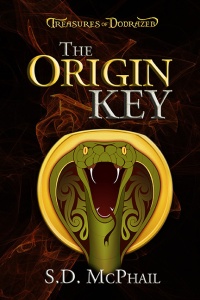
 That’s right—SECRET STAIRS is at the top of the Amazon charts in Horror Anthologies! Early reviewers love it and so will you!
That’s right—SECRET STAIRS is at the top of the Amazon charts in Horror Anthologies! Early reviewers love it and so will you!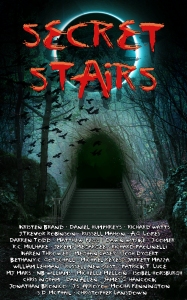 Inspired by the spookiest of urban legends, thirty-four authors spin tales that range from science fiction to fantasy, horror to mystery. There’s even a romance! Definitely something for everyone.
Inspired by the spookiest of urban legends, thirty-four authors spin tales that range from science fiction to fantasy, horror to mystery. There’s even a romance! Definitely something for everyone. 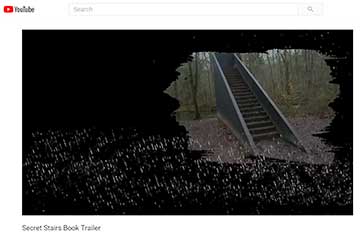
 Inspired by the spookiest of urban legends, thirty-four authors spin tales that range from science fiction to fantasy, horror to mystery.
Inspired by the spookiest of urban legends, thirty-four authors spin tales that range from science fiction to fantasy, horror to mystery.
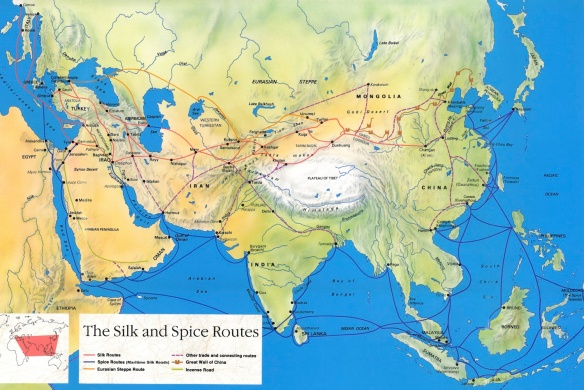 The Chinese began making silk fabrics around the year 2700 BCE. Reserved exclusively for use in their imperial court, methods for creating silk were kept secret for more than 3,000 years. But silks showed up in other parts of the world as the Chinese traded it extensively with their nearest neighbors and used it as diplomatic gifts. Early in the first century BCE, silk became prized in the Roman Empire as a rare and exotic luxury. Trading routes were developed and expanded to move the goods from East to West. From Rome, the desire for silk was introduced to other western cultures.
The Chinese began making silk fabrics around the year 2700 BCE. Reserved exclusively for use in their imperial court, methods for creating silk were kept secret for more than 3,000 years. But silks showed up in other parts of the world as the Chinese traded it extensively with their nearest neighbors and used it as diplomatic gifts. Early in the first century BCE, silk became prized in the Roman Empire as a rare and exotic luxury. Trading routes were developed and expanded to move the goods from East to West. From Rome, the desire for silk was introduced to other western cultures. Much more was exchanged along the Silk Roads than just sought after trade goods. The trade routes connected major cities and civilizations, making cultural interaction necessary. Languages and customs were understood and adopted to make buying and selling possible. Religions and cultures developed and influenced each other because knowledge about science, arts, literature, crafts, and technologies was shared across the Silk Roads. By the way, scientists and historians now widely believe that the route was a primary way that the Black Death plague bacteria moved westward into Europe.
Much more was exchanged along the Silk Roads than just sought after trade goods. The trade routes connected major cities and civilizations, making cultural interaction necessary. Languages and customs were understood and adopted to make buying and selling possible. Religions and cultures developed and influenced each other because knowledge about science, arts, literature, crafts, and technologies was shared across the Silk Roads. By the way, scientists and historians now widely believe that the route was a primary way that the Black Death plague bacteria moved westward into Europe. Before the network of Silk Road trading routes, there was the Persian Royal Road which would become one of the main arteries of the Silk Road. Before his death circa 529 BCE, Cyrus the Great had conquered a vast amount of territory, uniting many small and large kingdoms and peoples under his rule. His Achaemenian Empire survived for more than two centuries due to his willingness to support local customs and religions of the people he conquered.
Before the network of Silk Road trading routes, there was the Persian Royal Road which would become one of the main arteries of the Silk Road. Before his death circa 529 BCE, Cyrus the Great had conquered a vast amount of territory, uniting many small and large kingdoms and peoples under his rule. His Achaemenian Empire survived for more than two centuries due to his willingness to support local customs and religions of the people he conquered.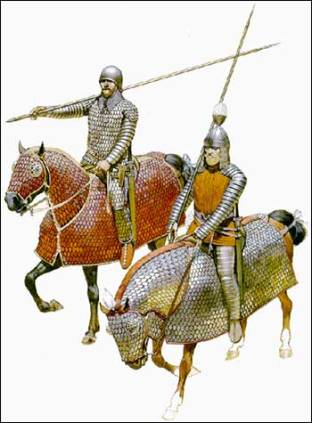 The Persian Royal Road ran from Susa, in north Persia (modern Iran) to the Mediterranean Sea in Asia Minor (modern Turkey) a distance of more than 1,600 miles. The postal stations at regular intervals along the route provided fresh horses for envoys to quickly deliver messages throughout the empire and inspired the famous line “Neither snow nor rain nor heat nor gloom of night stays these couriers from the swift completion of their appointed rounds.”
The Persian Royal Road ran from Susa, in north Persia (modern Iran) to the Mediterranean Sea in Asia Minor (modern Turkey) a distance of more than 1,600 miles. The postal stations at regular intervals along the route provided fresh horses for envoys to quickly deliver messages throughout the empire and inspired the famous line “Neither snow nor rain nor heat nor gloom of night stays these couriers from the swift completion of their appointed rounds.” 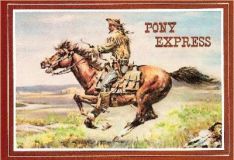 Even though it set speed records for mail delivery and became a well-loved and thoroughly romanticized piece of historical lore, the Pony Express was only in operation for 19 months. In that brief time, it failed to secure a lucrative government mail contract and never turned a profit. Between hostile Native Americans and the completion of the transcontinental telegraph system, the Pony Express was driven out of business and became obsolete in October of 1861.
Even though it set speed records for mail delivery and became a well-loved and thoroughly romanticized piece of historical lore, the Pony Express was only in operation for 19 months. In that brief time, it failed to secure a lucrative government mail contract and never turned a profit. Between hostile Native Americans and the completion of the transcontinental telegraph system, the Pony Express was driven out of business and became obsolete in October of 1861. So, just how did that famous phrase come to be associated with the U.S. Postal Service? The unofficial motto is inscribed in granite over the entrance of the James A. Farley building at Eighth Avenue and 33rd Street in New York City, right in the middle of Manhattan. Back in the early twentieth century, the architectural firm of McKim, Mead & White was chosen to design the New York General Post Office building. Construction began in 1912 and it was opened to the public in 1914. The building was doubled in size in 1934 and its name was changed to honor Postmaster General James A. Farley.
So, just how did that famous phrase come to be associated with the U.S. Postal Service? The unofficial motto is inscribed in granite over the entrance of the James A. Farley building at Eighth Avenue and 33rd Street in New York City, right in the middle of Manhattan. Back in the early twentieth century, the architectural firm of McKim, Mead & White was chosen to design the New York General Post Office building. Construction began in 1912 and it was opened to the public in 1914. The building was doubled in size in 1934 and its name was changed to honor Postmaster General James A. Farley.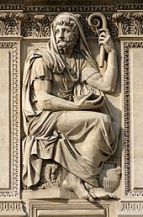 William Mitchell Kendall was one of the architects. Kendall, who frequently read classic Greek literature for pleasure, had grown up in a wealthy household with a father who was a scholar of the classics. He selected a passage (translated by Professor George Herbert Palmer of Harvard University) from book 8, paragraph 98, of The Persian Wars by the ancient Greek historian Herodotus (c 484–c 425 BCE). The Post Office Department agreed that Kendall’s slight modification of the original translation was suitable for the building, and approved it.
William Mitchell Kendall was one of the architects. Kendall, who frequently read classic Greek literature for pleasure, had grown up in a wealthy household with a father who was a scholar of the classics. He selected a passage (translated by Professor George Herbert Palmer of Harvard University) from book 8, paragraph 98, of The Persian Wars by the ancient Greek historian Herodotus (c 484–c 425 BCE). The Post Office Department agreed that Kendall’s slight modification of the original translation was suitable for the building, and approved it.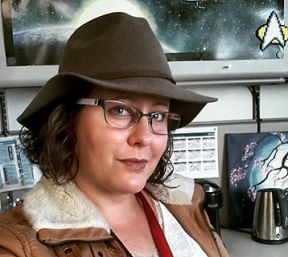 Ashley Chappell is the author of the young adult fantasy Dreams of Chaos series (Alice Will, Tilt, and A God of Gods). She is also the author of the irreverent paranormal romp Of War and Taters, a satire set in the fictional deep south.
Ashley Chappell is the author of the young adult fantasy Dreams of Chaos series (Alice Will, Tilt, and A God of Gods). She is also the author of the irreverent paranormal romp Of War and Taters, a satire set in the fictional deep south.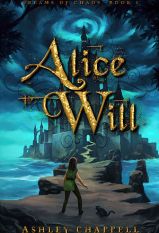 Fourteen-year-old Trotter was still just trying to get the hang of the demi-godding business when the apocalypse began. In a world where the gods have withdrawn from humanity, leaving mortals bitter toward magic, she finds herself constantly torn between her human and goddess sides. When the world begins to fade away and she becomes the prime suspect, her search to find the cause and prove her innocence ends up revolving around a mysterious little girl named Alice. Then Trotter discovers that not all of the gods had been as distant as they seemed… Now, with everyone against her and the gods fighting amongst themselves, Trotter is on her own to save her world and stop a vengeful god from using Alice to destroy everything.
Fourteen-year-old Trotter was still just trying to get the hang of the demi-godding business when the apocalypse began. In a world where the gods have withdrawn from humanity, leaving mortals bitter toward magic, she finds herself constantly torn between her human and goddess sides. When the world begins to fade away and she becomes the prime suspect, her search to find the cause and prove her innocence ends up revolving around a mysterious little girl named Alice. Then Trotter discovers that not all of the gods had been as distant as they seemed… Now, with everyone against her and the gods fighting amongst themselves, Trotter is on her own to save her world and stop a vengeful god from using Alice to destroy everything. Two years ago Trotter saved her world and the entire pantheon of Realm from a dark god. Unfortunately, gratitude didn’t stop the gods from banning her from Realm when she refused to declare her dominion as a goddess. Now even her lonely refuge in Aevum is destroyed as something violently tilts the world away from the sun, plunging it into permanent night. Once again on her own to save her home, Trotter uncovers a hidden world forgotten by the gods that faces a similar fate. Unable to turn to Realm for help, Trotter will be forced to finally choose a dominion that will let her save both worlds, even if it means losing one forever. However, throughout her journey she is unaware that the terrifying darkness growing within her means another dominion has already chosen her…
Two years ago Trotter saved her world and the entire pantheon of Realm from a dark god. Unfortunately, gratitude didn’t stop the gods from banning her from Realm when she refused to declare her dominion as a goddess. Now even her lonely refuge in Aevum is destroyed as something violently tilts the world away from the sun, plunging it into permanent night. Once again on her own to save her home, Trotter uncovers a hidden world forgotten by the gods that faces a similar fate. Unable to turn to Realm for help, Trotter will be forced to finally choose a dominion that will let her save both worlds, even if it means losing one forever. However, throughout her journey she is unaware that the terrifying darkness growing within her means another dominion has already chosen her…
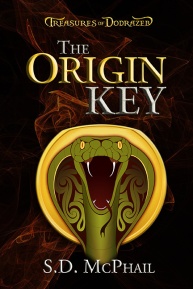 My novel
My novel 
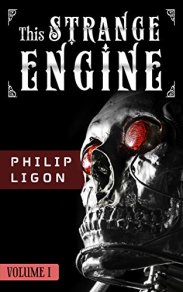 Thief. Pauper. Magic addict. Alexander Asherton, Ash to his friends, has reached the low point of his life. A once promising future with the Church of England has given way to a clandestine organization which tracks and collects magical items. They provide the elixirs that keep Ash alive, and in exchange he uses the power the elixirs grant to ‘acquire’ what they desire. If he succeeds, he lives. If he fails, he dies. The arrangement is simple enough… until his latest assignment becomes personal: recover an item in the possession of his former wife, Aimee. Ash’s world becomes even darker and stranger as he is drawn into a past he had hoped to leave behind.
Thief. Pauper. Magic addict. Alexander Asherton, Ash to his friends, has reached the low point of his life. A once promising future with the Church of England has given way to a clandestine organization which tracks and collects magical items. They provide the elixirs that keep Ash alive, and in exchange he uses the power the elixirs grant to ‘acquire’ what they desire. If he succeeds, he lives. If he fails, he dies. The arrangement is simple enough… until his latest assignment becomes personal: recover an item in the possession of his former wife, Aimee. Ash’s world becomes even darker and stranger as he is drawn into a past he had hoped to leave behind.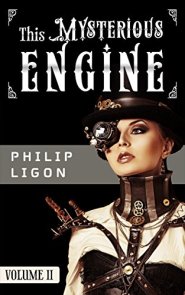 Love. Betrayal. Revenge. Problems are growing worse for Ash. To save Sheela, the woman he loves, he had no choice but to betray her greatest secret. As a result, she was taken prisoner by Duke Schaever, the man who controls the flow of magic into the English Empire. Although Ash has tried to rescue Sheela, failure after failure has made him desperate enough to accept a new mission from his employers that will strike Duke Schaever at the most personal of levels – by kidnapping Lady Elizabeth Stewart, the Duke’s betrothed. It is an assignment fraught with danger, and as Ash moves closer to his goal, he is pulled deeper into the Duke’s world – a place that reveals the abominations of magic and science, that gives rise to new enemies, and where Ash learns exactly what motivates the Duke. The discoveries test friendships, love, and loyalties, even as it forces Ash to question what it means to live. And what it means to die.
Love. Betrayal. Revenge. Problems are growing worse for Ash. To save Sheela, the woman he loves, he had no choice but to betray her greatest secret. As a result, she was taken prisoner by Duke Schaever, the man who controls the flow of magic into the English Empire. Although Ash has tried to rescue Sheela, failure after failure has made him desperate enough to accept a new mission from his employers that will strike Duke Schaever at the most personal of levels – by kidnapping Lady Elizabeth Stewart, the Duke’s betrothed. It is an assignment fraught with danger, and as Ash moves closer to his goal, he is pulled deeper into the Duke’s world – a place that reveals the abominations of magic and science, that gives rise to new enemies, and where Ash learns exactly what motivates the Duke. The discoveries test friendships, love, and loyalties, even as it forces Ash to question what it means to live. And what it means to die. Morgon Newquist started life by causing an international incident in Central America, and has been marching to the beat of her own drummer ever since. She grew up in the Rocket City—Huntsville, Alabama. After a stint at the University of Georgia to study Latin, she has returned to the place of her upbringing where she wrangles two dogs, a cat, and four children daily. She is an avid fan of fantasy, science fiction, gaming of all types and other nerdy pursuits.
Morgon Newquist started life by causing an international incident in Central America, and has been marching to the beat of her own drummer ever since. She grew up in the Rocket City—Huntsville, Alabama. After a stint at the University of Georgia to study Latin, she has returned to the place of her upbringing where she wrangles two dogs, a cat, and four children daily. She is an avid fan of fantasy, science fiction, gaming of all types and other nerdy pursuits. Alis was a quiet librarian at the campus library of the School of Spells & Magic—that is, until the sword wielding buffoon Cahan had the audacity to battle a dragon in her library! Now she’s following him off on some foolhardy adventure. As they try to save the university from the mysterious Formless, she fights an equally important battle—to maintain her self-respect! The School of Spells & War is an ongoing collection of old fashioned sword-and-sorcery adventure stories following a wizard and warrior duo as they gallivant across the continent of Thillon. Good-humored, powerful warrior Cahan and intelligent, skilled wizard Alis work together to serve their university, the school of spells and war, by battling dragons, investigating plots against the king, hunting witches, and dealing with the ongoing threat of the ancient and mysterious Formless.
Alis was a quiet librarian at the campus library of the School of Spells & Magic—that is, until the sword wielding buffoon Cahan had the audacity to battle a dragon in her library! Now she’s following him off on some foolhardy adventure. As they try to save the university from the mysterious Formless, she fights an equally important battle—to maintain her self-respect! The School of Spells & War is an ongoing collection of old fashioned sword-and-sorcery adventure stories following a wizard and warrior duo as they gallivant across the continent of Thillon. Good-humored, powerful warrior Cahan and intelligent, skilled wizard Alis work together to serve their university, the school of spells and war, by battling dragons, investigating plots against the king, hunting witches, and dealing with the ongoing threat of the ancient and mysterious Formless. A.G. Porter is the author of The Darkness Trilogy, a YA Paranormal Thriller, and Pieces of My Heart, a book of poetry. She is currently writing a spin-off of her Darkness Trilogy characters, as well as her next poetry book. When she isn’t writing, she’s either busy being the coolest librarian on the planet or spending much needed time with her family. Ms. Porter lives in New Hope, Alabama with her husband, Billy, stepson, Brenton, and their 4 dogs.
A.G. Porter is the author of The Darkness Trilogy, a YA Paranormal Thriller, and Pieces of My Heart, a book of poetry. She is currently writing a spin-off of her Darkness Trilogy characters, as well as her next poetry book. When she isn’t writing, she’s either busy being the coolest librarian on the planet or spending much needed time with her family. Ms. Porter lives in New Hope, Alabama with her husband, Billy, stepson, Brenton, and their 4 dogs. The Shadow Rayna Stone is an eighteen-year-old girl from a small Alabama town that just wants to save a little money for college. A summer job at an upscale resort surrounded by snobby, rich folks isn’t her idea of fun—until she meets eyes with the owner’s son, Liam and things begin to look brighter. But then she starts seeing things that she can’t explain and having dreams that are haunted by a being she calls The Shadow. The Shadow shows her things about some missing girls that she wished she had never seen and her dreams seem to be coming true. As if that isn’t enough, she learns that her ability gives her an insight into the feelings of others around her. When Rayna learns that Liam does feel something for her, she wants to tell him she feels the same, but something is warning her to stay away. Not because he is dangerous, but because she is.
The Shadow Rayna Stone is an eighteen-year-old girl from a small Alabama town that just wants to save a little money for college. A summer job at an upscale resort surrounded by snobby, rich folks isn’t her idea of fun—until she meets eyes with the owner’s son, Liam and things begin to look brighter. But then she starts seeing things that she can’t explain and having dreams that are haunted by a being she calls The Shadow. The Shadow shows her things about some missing girls that she wished she had never seen and her dreams seem to be coming true. As if that isn’t enough, she learns that her ability gives her an insight into the feelings of others around her. When Rayna learns that Liam does feel something for her, she wants to tell him she feels the same, but something is warning her to stay away. Not because he is dangerous, but because she is. The Forsaken Six months ago, Rayna Stone came face-to-face with a demented serial killer and survived, but not unscathed. Everyone knows that she is the “girl who almost died.” She’d rather hide, but she tries to live her life, go to school, get a job, and try not to let her Gift overwhelm her. Her nightmares have changed, but they’re still trying to show her something. All she can see are The Eyes and they must be watching her for a reason. Ron is still out there and The Shadow still haunts her dreams. Her Gift is getting stronger and she has obtained very powerful and more deadly abilities. While this might sound desirable, Rayna can’t help but think that means her Gift is preparing her for a war.
The Forsaken Six months ago, Rayna Stone came face-to-face with a demented serial killer and survived, but not unscathed. Everyone knows that she is the “girl who almost died.” She’d rather hide, but she tries to live her life, go to school, get a job, and try not to let her Gift overwhelm her. Her nightmares have changed, but they’re still trying to show her something. All she can see are The Eyes and they must be watching her for a reason. Ron is still out there and The Shadow still haunts her dreams. Her Gift is getting stronger and she has obtained very powerful and more deadly abilities. While this might sound desirable, Rayna can’t help but think that means her Gift is preparing her for a war. The Redeemed Nightmares. The oncoming war. More Gifted emerge and not all of them are on her side. Secrets about her father are revealed. Who are The Children of The Light? Will Rayna be able to resist the powers of The Shadow with Jayce’s help? She had planned to face down her demons with Liam by her side, but now that he’s lost his soul, is he really lost to her forever?
The Redeemed Nightmares. The oncoming war. More Gifted emerge and not all of them are on her side. Secrets about her father are revealed. Who are The Children of The Light? Will Rayna be able to resist the powers of The Shadow with Jayce’s help? She had planned to face down her demons with Liam by her side, but now that he’s lost his soul, is he really lost to her forever? Born in Fountain Valley, CA, raised in a small town called Montrose, CA, Amanda Orneck has never stayed in one place for long – until now. She currently calls Huntsville, AL home, where she spends her days writing, gaming, and loving her family to pieces.
Born in Fountain Valley, CA, raised in a small town called Montrose, CA, Amanda Orneck has never stayed in one place for long – until now. She currently calls Huntsville, AL home, where she spends her days writing, gaming, and loving her family to pieces.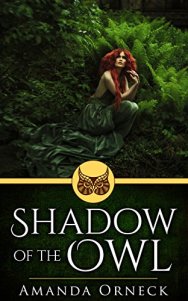 In a kingdom populated with nomadic elves and human colonists, pampered princess Mylena lives a charmed life. Her world is thrown into turmoil however, the night her mother loses her throne, her kingdom and her life. Forced to flee the castle, Mylena must live in secret amongst the peasants of a small elven settlement, tending to her wounded father and eking out a living as an apothecary. As she does, a new sort of life rises from the ashes of her old one, a life that includes the kindling of romance with a young elven boy named Fionn. Mylena falls in love with her new life among the peasants, and prepares to spend her days treating illnesses and hiding who she really is.
In a kingdom populated with nomadic elves and human colonists, pampered princess Mylena lives a charmed life. Her world is thrown into turmoil however, the night her mother loses her throne, her kingdom and her life. Forced to flee the castle, Mylena must live in secret amongst the peasants of a small elven settlement, tending to her wounded father and eking out a living as an apothecary. As she does, a new sort of life rises from the ashes of her old one, a life that includes the kindling of romance with a young elven boy named Fionn. Mylena falls in love with her new life among the peasants, and prepares to spend her days treating illnesses and hiding who she really is.